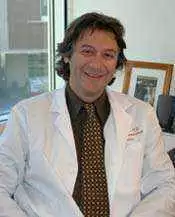
In my work as an author, researcher, and gluten-free advocate, I strive to raise awareness for celiac disease and gluten intolerance because I know that with increased awareness will come more research, more proper diagnoses, and even improved treatment. Illustrating this, studies linking the onset of celiac disease to changes in microbes in the digestive tract are not only addressing the question of delayed onset, but they may lead to new research that could eventually result in a probiotic treatment for celiacs.
Celiac disease is an autoimmune disease. The source of this being gluten, a protein found in wheat, barley, and rye, affecting about one percent of the population of 300 million Americans. It works by attacking the villi, the finger-like structures which line the small intestine, resulting in stomach problems and malabsorption of nutrients. Left untreated, the disease can cause severe health conditions and complications such as mental illness, osteoporosis, anemia, miscarriage, and even cancer.
Celiac.com Sponsor (A12):
Alessio Fasano, professor of pediatrics, medicine and physiology as well as the director of the Mucosal Biology Research Center and the Center for Celiac Research at the University of Maryland School of Medicine, has been researching celiac disease, paying particular attention to the way intestinal “permeability” influences the development of disease. In an article, published in Scientific American, called “Surprises from Celiac Disease,” Dr. Fasano poses the question of why some celiacs, who are born genetically predisposed to develop the disease, develop symptoms later than others. He suggests that reason for this is associated with the microbiome—the community of bacteria or microbes—living in the digestive tract.
According to Dr. Fasano, the digestive tract microbiome varies among individuals and even in the same individual over the course of a lifetime. What’s more, Dr. Fasano says they can also have an effect on the genes which are active in their host. Therefore, someone genetically predisposed to celiac disease may have been able to handle gluten for quite some time, but upon shifting of the microbiome, and a subsequent activation of the gluten intolerance gene, the symptoms of celiac disease will show themselves.
Not only do Dr. Fasano’s studies shed light into a question that has been perplexing researchers, but it also opens the door to a treatment for, or even prevention of, celiac disease—good bacteria for the digestive track, otherwise known as “probiotics.”
I spent years running in circles from doctor to doctor trying to find the cause of my painful symptoms, finally driving me to research my symptoms on my own. I’m grateful to have been properly diagnosed, but managing the gluten-free diet can be a challenge. The prospect of a treatment such as probiotics to offset genetic factors will appeal to many celiacs like myself. Although the treatment for celiac disease is simple, it calls for a lot of work and can be disheartening at times, requiring a total lifestyle change.
With Dr. Fasano’s celiac disease research, we can look forward to more research, more awareness, and perhaps another treatment option. Meanwhile, let’s keep doing our parts to raise awareness and funds for celiac disease research.







Recommended Comments